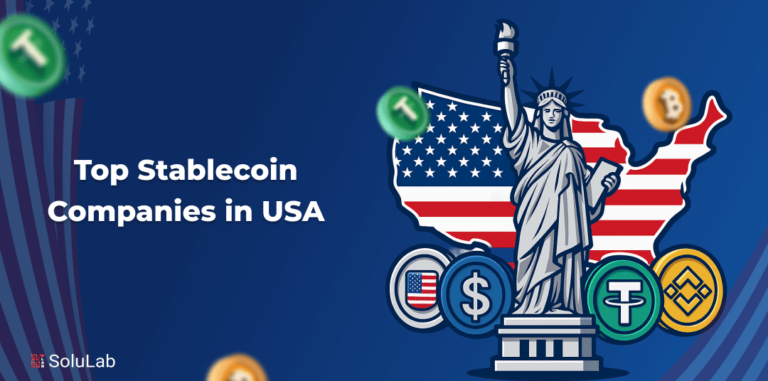It is essentially a kind of cryptocurrency exchange that is entirely controlled and handled by software. It allows market players to conduct direct trades with one another. It does not need any trusted third party to execute all transactions. Rather, smart contract-powered escrow mechanisms guarantee that traders’ transactions are trustworthy, transparent, and efficient. Decentralized p2p exchange takes this concept to optimum efficiency.
Regular cryptocurrency exchanges serve as go-betweens for buyers and sellers. They earn money by charging fees on transactions. Decentralized peer-to-peer trade interactions, on the other hand, are entirely controlled by pre-programmed software and do not need any middlemen.
Decentralized peer-to-peer crypto trading is the pinnacle of the decentralization concept. Users may, in fact, trade crypto assets straight on the platform without the need for a middleman to facilitate transactions. It does not require any kind of government regulation or supervision. Smart contracts, on the other hand, handle all duties by completely automating them. The absence of human intervention significantly reduces overhead expenses.
Features of decentralized p2p exchange
Powerful Matching Engine
The exchange is bolstered by a high-speed engine suitable for pairing sellers and buyers with the least amount of delay.Instant KYC and AML Verification
An intuitive identity verification solution speeds up the KYC procedure while adhering to the correct protocol.Multi-Layer Security
SSL installation and two-factor authentication, such as email and Google login, provide an important layer of protection to our P2P trading platform.Escrow System
A safe and trustworthy smart contract-based escrow system facilitates trade among platform members.Dispute Management
A solid dispute resolution system provides the administrator with smooth dispute resolution.Automatic Swap
A peer-to-peer swap promotes transactions between authorized users, removing the need for an intermediary.Multi-Language Support
Multi-Language Support Multi-language support gives your P2P exchange worldwide visibility.
Top 5 Decentralized p2p Exchanges
Uniswap
The Uniswap (UNI) protocol exemplifies the potential of dApps. It is a driving factor behind the DeFi ecosystem’s fast expansion. Uniswap is an Ethereum blockchain-based decentralized trading system. The platform allows for peer-to-peer (P2P) bitcoin transactions to take place without the need of order books or a centralized middleman.
The Uniswap platform does this via the use of a liquidity pool concept. As the main source of market liquidity, it employs automated smart contracts to allow potential traders to access competing user-funded token reserves. Anyone may use Uniswap to swap tokens, donate tokens to a pool and earn fees, or list a token. Because Uniswap is based on Ethereum, it can trade virtually any ERC-20 token. Furthermore, unlike other centralized crypto exchanges, there are no listing fees for a token to be accessible for trading on Uniswap.
SushiSwap
SushiSwap is a decentralized exchange (DEX) that has its own automated market maker (AMM) smart contracts. SushiSwap, developed by Chef Nomi, operates on the Ethereum blockchain. SushiSwap arose as a fork of Uniswap, another AMM DEX that grew to become one of the most popular DeFi projects in terms of volume in 2020. Its code was open-source, and SushiSwap engineers discovered that there were many enhancements that could be made.
SushiSwap drew customers and liquidity from UniSwap to jump-start the business. They provided increased incentives to liquidity providers (LPs), a contentious process described as a “vampire assault.” However, it was a successful strategy, with over 90% of the liquidity of certain Uniswap pools being moved to SushiSwap.
Atomex
Atomex Exchange is a hybrid decentralized financial exchange built on the Atomic swap underlying mechanism. The trader may conduct cross-chain transactions on this exchange without the involvement of a third party. The currencies may be exchanged directly between Blockchains. There is no need to pin any more coins.
Crypto traders are expected to benefit from cross-chain decentralization. It may be a fantastic alternative to centralized exchanges since it combines some of its features with those of decentralized exchanges.
The order book in Atomex is generated at a separate location by the liquidity providers. However, the order’s implementation is entirely decentralized. The funds are sent straight from the wallets to the smart contracts or the Hash Time locked contracts for the Atomic swap to be executed.
PancakeSwap
PancakeSwap is a decentralized cryptocurrency exchange that allows users to trade BEP-20 tokens.
Unlike conventional exchanges, the PancakeSwap platform does not utilize order books. It instead employs an AMM (automated market maker) approach. It directly matches buy and sell orders with others in a liquidity pool. User deposits help to keep liquidity pools afloat. Users may earn trading fees and liquidity provider or LP tokens by providing liquidity to such a pool. LP tokes may be redeemed for the original capital investment plus any fees received, minus any temporary loss. Additionally, LP tokens may be staked, farmed, and sold.
It is not commonplace to clone or replicate open source code from a popular decentralized application (dApp). Many new initiatives, particularly in DeFi, are based on older protocols, with minor changes to the original code. Simply modify a popular open-source code, add a new token, and name it after your favorite food, and voila – you’ve got yourself a freshly baked DeFi clone!
Whether you believe cloning is a good thing or a negative thing, it occurs a lot in the crypto world. SushiSwap, for example, is a clone of Uniswap. As a result, it should come as no surprise that PancakeSwap seems to operate in a manner similar to SushiSwap, with a comparable structure and user experience.
PancakeSwap, on the other hand, is turning the yield farming paradigm on its head by providing a slew of new features that give an all-in-one yield optimization platform based on the Pancake token (CAKE). Furthermore, PancakeSwap benefits from the security of Binance Smart Chain (BSC), which may be enough to persuade some DeFi doubters.
DexGuru
Dexguru is a trading tool for DeFi traders that combines on-chain information with execution capabilities. DexGuru combines permissionless, real-time data on every on-chain market, sophisticated analytics, and research tools, and trade execution capabilities – all in a single, completely integrated user interface. The DexGuru Interface gives users access to decentralized protocols on the Ethereum, BSC, and Polygon blockchains, allowing them to execute specific operations using digital assets or Virtual Currencies.
Conclusion
All of the initiatives discussed in this article are making significant contributions to the technology of decentralized crypto exchanges.
As our research has shown, the majority of DEXs are only focused on the Ethereum environment and only enable exchanges between ERC tokens. There are currently just a handful of DEX protocols that are not unique to the Ethereum ecosystem. Many of them depend on smart contracts, which may create security flaws, compel users to surrender control of their money, increase trading fees, and prohibit direct peer-to-peer exchanges.
Almost every DEX accessible in space now has aspects of centralization. To broadcast buy and sell orders and match users, some depend on a limited number of centralized, project-controlled order matching nodes. Others require registration, KYC documentation, and/or the payment of one-time registration fees.
SoluLab is one of the top 3 blockchain developers in the world. Reach out to us today for your project’s free consultation.




